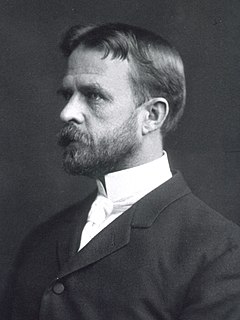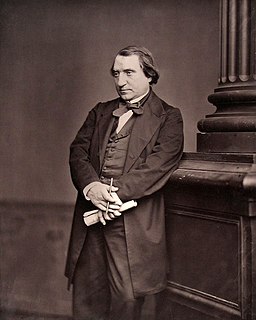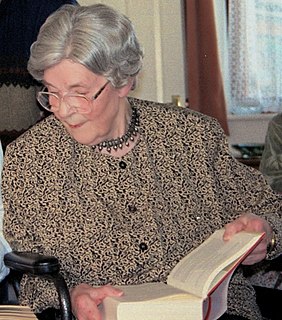A Quote by Alan Watts
There is no mission, nor interest to convert, and yet I believe that if this state of consciousness could become more universal, the pretentious nonsense which passes for the serious business of the world would dissolve in laughter. We should see at once that the high ideals for which we are killing and regimenting each other are empty and abstract substiutes for the unheeded miracles that surround us - not only in the obvious wonders of nature but also in the overwhelming uncanny fact of mere existence.
Quote Topics
Abstract
Also
Become
Believe
Business
Consciousness
Convert
Could
Dissolve
Each
Empty
Existence
Fact
High
I Believe
Ideals
Interest
Killing
Laughter
Mere
Miracles
Mission
More
Nature
Nonsense
Nor
Obvious
Once
Only
Other
Overwhelming
Passes
Pretentious
See
Serious
Serious Business
Should
State
Surround
Uncanny
Universal
Us
Which
Wonders
World
Would
Related Quotes
The point is seeing that THIS - the immediate, everyday and present experience - is IT, the entire and ultimate point for the existence of a universe. I believe that if this state of consciousness could become more universal, the pretentious nonsense which passes for the serious business of the world would dissolve in laughter.
Then it was as if I suddenly saw the secret beauty of their hearts, the depths of their hearts where neither sin nor desire nor self-knowledge can reach, the core of their reality, the person that each one is in God's eyes. If only they could see themselves as they really are. If only we could see each other that way all the time, there would be no more war, no more hatred, no more cruelty, no more greed . . . I suppose the big problem would be that we would fall down and worship each other.
I would... establish the conviction that Chemistry, as an independent science, offers one of the most powerful means towards the attainment of a higher mental cultivation; that the study of Chemistry is profitable, not only inasmuch as it promotes the material interests of mankind, but also because it furnishes us with insight into those wonders of creation which immediately surround us, and with which our existence, life, and development, are most closely connected.
Neither fear nor self-interest can convert the soul. They may change the appearance, perhaps even the conduct, but never the object of supreme desire... Fear is the motive which constrains the slave; greed binds the selfish man, by which he is tempted when he is drawn away by his own lust and enticed (James 1:14). But neither fear nor self-interest is undefiled, nor can they convert the soul. Only charity can convert the soul, freeing it from unworthy motives.
Men and women in all parts of the world have a desperate need to take time from their demanding routines of everyday life and to quietly observe God's miracles taking place all around them. Think of what would happen if all of us took time to look carefully at the wonders of nature that surround us and devoted ourselves to learning more about this world that God created for us!
The breakdown of Plato's philosophy is made apparent in the fact that he could not trust to gradual improvements in education to bring about a better society which should then improve education, and so on indefinitely. Correct education could not come into existence until an ideal state existed, and after that education would be devoted simply to its conservation. For the existence of this state he was obliged to trust to some happy accident by which philosophic wisdom should happen to coincide with possession of ruling power in the state.
We all should choose our friends carefully. I used to think that no one could know me better than somebody else, because you're inside yourself, your body, you can't see yourself. If you think like that, you surround yourself with other people who are willing to tell you who you are, which are usually judgmental people ... we should really surround ourselves with the ones that adore us and believe in the highest of us.
That the fundamental aspects of heredity should have turned out to be so extraordinarily simple supports us in the hope that nature may, after all, be entirely approachable. Her much-advertised inscrutability has once more been found to be an illusion due to our ignorance. This is encouraging, for, if the world in which we live were as complicated as some of our friends would have us believe we might well despair that biology could ever become an exact science.
It is not merely the brevity by which the haiku isolates a particular group of phenomena from all the rest; nor its suggestiveness, through which it reveals a whole world of experience. It is not only in its remarkable use of the season word, by which it gives us a feeling of a quarter of the year; nor its faint all-pervading humour. Its peculiar quality is its self-effacing, self-annihilative nature, by which it enables us, more than any other form of literature, to grasp the thing-in-itself.
In this external world, which is full of finite things, it is impossible to see and find the Infinite. The Infinite must be sought in that alone which is infinite, and the only thing infinite about us is that which is within us, our own soul. Neither the body, nor the mind, nor even our thoughts, nor the world we see around us, is infinite.
Nature consists of facts and of regularities, and is in itself neither moral nor immoral. It is we who impose our standards upon nature, and who in this way introduce morals into the natural world, in spite the fact that we are part of this world. We are products of nature, but nature has made us together with our power of altering the world, of foreseeing and of planning for the future, and of making far-reaching decisions for which we are morally responsible. Yet, responsibility, decisions, enter the world of nature only with us
I do believe I begin to grasp the nature of miracles! For would it be a miracle, if there was any reason for it? Miracles have nothing to do with reason. Miracles contradict reason, they strike clean across mere human deserts, and deliver and save where they will. If they made sense, they would not be miracles.
For my part, I feel that with regard to Nature I live a sort of border life, on the confines of a world, into which I make occasional and transient forays only, and my patriotism and allegiance to the state into whose territories I seem to retreat are those of a moss-trooper. Unto a life which I call natural I would gladly follow even a will-o'-the-wisp through bogs and sloughs unimaginable, but no moon nor fire-fly has shown me the cause-way to it. Nature is a personality so vast and universal that we have never seen one of her features.








































